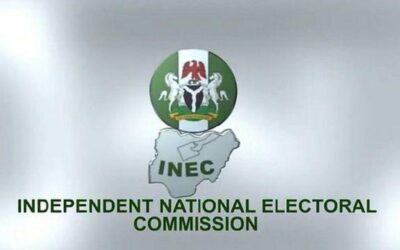5G Revolution: A Nation Left Behind
Prof Umar Garba Danbatta, the Executive Vice Chairman of the Nigerian Communications Commission, NCC, has explained to the public that the 5G technology has the ability to provide technological support for security, rural development, employment opportunities and also increase the capacity of established structures.
Prof Danbatta made this statement recently at the Digital Bridge, Utako, Abuja. He, however, lamented that misinformation and unfounded fears concerning the 5G technology had forestalled its launch nationwide.
Qualcomm, an international technology site, describes 5G as a wireless network that is far advanced than the previous generations which include 1G, 2G, 3G and 4G. This advancement provides the capacity to connect man’s creativity to the effective deployment of machine at a faster speed. It also has the capacity to synchronise devices, networks, machines, objects and cover distances in a unique and versatile way.
The 5G provides higher multi-Gbps peak data speeds, ultra-low latency, more reliabilty, massive network capacity, increased availability and more informed user experience. The potential of an informed user experience will make work and play easier as it studies human behaviour in order to achieve ease in multiple functionalities.
Andriod Police, an expert telcoms site, explains the 5G in layman’s terms. It noted that ‘5G is the next Generation of wireless Communication that is beyond 4G. Some of its functionality are yet to be finalised’ but its capacity has been largely determined.
Andriod Police further stated that 5G resolves wireless congestion, internet glitches and therefore provides a fast and seamless deployment of communication and services which include live streaming, virtual reality, information dissemination and communication.
Besides, the adoption of the 5G will increase the ease of doing international business without leaving one’s home country. This way it would shrink the world from a global village to a small township of cultures.

Unfortunately, the launch of the 5G has been stalled due to what Prof. Danbatta described as ‘falsehood and misinformation’ that have made the rounds amongst potential users and stakeholders all of which has helped form antagonistic opinions and policy bulwarks against the installation and operation of the 5G Network by telecoms companies in Nigeria.
Telecoms Giants, MTN, Airtel and Main One have shown interest and are willing to invest in the 5G infrastructure but have not received any licence from the Federal Government due to the existing challenges.
Read Also: 5G Deployment: Speeding to Create a Digital Nigeria
Consequently, many international online pundits have raised the alarm that the 5G wireless network counteracts with the body fluids, cells and tissues and has the propensity to cause widespread cancerous mutations. These pundits have cross-referenced the presence of 5G network masts to the massive death of birds and shrinking of trees in the areas where the mast is erected.
In the same way, other influencers have asserted that the installation of the 5G networks in China, England, Hague and many other places led to the first incidence of COVID-19 and scrouge of the same nature in many cosmopolitan states. This was said to have led to the destruction of the 5G network infrastructure in some countries.
However, technology pundits have debunked such notions through scientfic research. Research, as a matter of fact, has shown that humans have an inbuilt shield that blocks higher electronic waves thereby preventing it from damaging body fluids, cells, tissues and causing mutations in the body. These technology pundits, backed by the United Nations Children’s Fund, have also asserted that COVID-19 is spread by contact with bodily fluids, and has nothing to do with wirelesss transmission.
Many 5G skeptics have also expressed the concern for infrastructural changes needed for the use of the network. They fear that businesses and corporations may have to overhaul its infrastructure and personnel in order to achieve its goals and aspirations with the use of 5G. This notion too has been repudiated by optimists who assert that 5G is simply an ‘upgrade’ of 4G and would not need any abrasive overhaul of infrastructure; neither would it need to retrench staff when the staff can be trained and retrained for the new oppourtunities that abound with the new technology. Although, they noted that there may be a few infrastructural changes, but such changes are not compulsory for any firm to make.
Moreover, due to the raging skepticism against the 5G network, Nigeria raised the alarm that MTN had launched its 5G Network. Isa Pantanmi, Minister of Communication and Digital Economy had to debunk the rumours that the FG had issued the licence to install 5G to MTN Communication PLC. He noted that although the Nigerian Communication Commission gave permission to MTN to test run their 5G network for three months, the FG had taken notice of the uproar against 5G and had swiftly stalled the full operations of 5G networks in order to ensure the safety and health of the people of Nigeria. Even so, the minister informed the public that the National Frequency Management Council was working for three months to determine the validity of the claims of the skeptics.
The Nigerian Senate has also called on the federal government to suspend the proposed deployment of the 5G network due to concerns raised by the general populace. Following this, the red chamber assigned the House Committee on Communication, Science, Technology and ICT in May 2020 to take a critical look at the issues concerning the installation of the 5G network and engage experts to determine the truism or falsity of the notions surrounding it.
Meanwhile, Engineers under the aegis of the Nigerian Institute of Electric and Electronic Engineers, (NIEEE), have urged the FG to leverage on the new technological advancement to compete effectively with the rest of the world in all aspects of its national life. The Engineers, who consider the 5G as a tool that can be used in making every sector of Nigeria buoyant and progressive, lamented that Nigeria has been a latecomer in deploying technology and technological tools thereby making it lag behind in helping her citizens attain their full potentials.
The organisation, more so, lamented that the FG had yet to achieve a nationwide saturation of 3G network at a time when the world had begun to move into another technological era. For them, it would take the involvement of will, investment and the engagement of scientists and engineers to help educate the mass of Nigerians about the advantages of the 5G.
Femi Morgan
Photo Credit: techeconomyng and The Guardian


